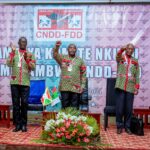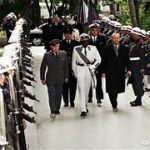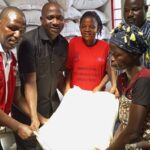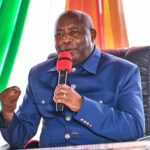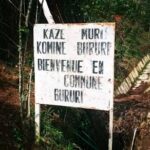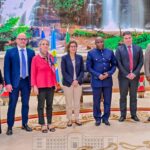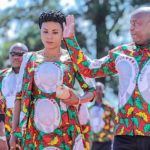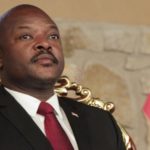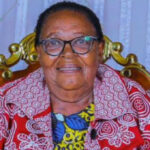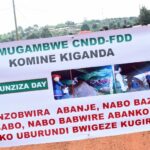MAJOR POINTS AROUND WHICH REVOLVED EXCHANGES BETWEEN THE EAC MINISTERIAL DELEGATION AND THE PRESIDENT OF THE REPUBLIC OF BURUNDI
1. Postponement of the elections : The government has tried everything in its power yet bearing in mind constitutional requirements.
2. Local and parliamentary elections that were initially scheduled for the 26th of May 2015 will now take place on the 29 of June 2015, meaning a-34 day shift.
3. Presidential election will be held on the 15th of July instead of the 26th of June.
Organizing elections beyond the above dates would not allow a second round should be any, and such a situation would trigger a transitional government.
4. Disarmament : Burundi has already a disarmament unit which has so far collected more than 100 thousand weapons ; the unit has been instructed to go ahead.
5. Securing the elections : Defense and Security Forces have been deployed across the country not only to secure elections, but also to search for weapons that may be illegally possessed by civilian population. As a matter of fact, weapons have already been seized.
6. Civil Liberties : The government has undertaken to suspend the execution of warrants arrest against the organizers of violent demonstrations. Politicians have also been urged to liaise with the government to assign security guards to those politicians. It should also be noted that infants and persons under the age of full legal responsibility have been discharged from custody.
7. Stopping violence and exercising restraint : Defense and security forces deployed in the four (4) neighborhoods of the city of Bujumbura where insurrection is reported have continued to suffer from provocation and violence from insurgents. However, they refrained and still from hitting back unless force majeure.
In spite of the recommendations by EAC Summit of the 31st May, violent demonstrations continued with its organizers turning a deaf ear to scores of appeals by the government and several organizations. Even though insurgency leaders are yet to publically declare the end of their operations, situation in Bujumbura is returning to normal.
8. Return of refugees : More than 40 thousands of the approximate 70 thousands reported refugees have so far returned back home and many more are returning on a daily basis. Most of refugees fled due panic resulting from rumors conveyed by some politicians who do not wish elections in Burundi, with the complicity of some foreigners and some members of civil society organizations who want Burundi to plunge into chaos. All this was exacerbated by unprofessional and ill intentioned media that also spread rumors in the country while fuelling disorders. The government intends to send delegations in neighboring countries to pacify its citizen and get them back home.
9. Mediation : The Government of Burundi welcomes efforts made by Said Djinit and condemns delaying tactics used by the opposition and the Civil Society of Burundi. The latter were the first to ask for talks to pave the way for conducive environment for elections. Surprisingly, they pulled out of negotiations over childish claims against the facilitator finally pushed to resign. The government would like to stress further that there is no room for negotiation as far as the candidacy of the current President is concerned.
10. Media and freedom of the press : The Press House is now open to all journalists. In the meantime, investigations are underway to establish responsibility following the participation of some Medias and journalists in connection with the failed coup as well as in the vandalizing of media facilities. Journalists are currently organizing themselves to establish a synergy aimed at covering the upcoming elections. The government of Burundi will support them.
11. Electoral campaign : It is underway, this time with all political parties and independent political actors involved in the current electoral process. Calls from some politicians to postpone again and again the elections are motivated by their hopeless expectations on the outcome of the elections as they do not have militants on the ground. Honestly, it would be better for them to have a transitional government where they can get something than spending their poor economies for nothing. The new electoral schedule has been readjusted as follows :
a – 29 June 2015 : Local Councils and MPs ;
b – 15 July, 2015 : Presidential Election ;
c – 24 July, 2015 : Senators.
Done at Bujumbura, June 15, 2015
Gervais ABAYEHO
Spokesman of the President

